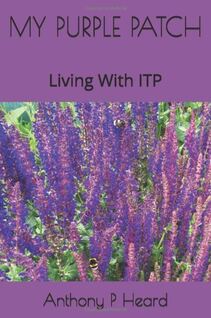 Guest author Anthony P. Heard shares with us his journey that led to his book "My Purple Patch: Living with ITP." I have often wondered why I would have wanted to torture myself by writing a book about my experiences with the rare auto immune condition Immune Thromboctyopenia (ITP). After all, since I was diagnosed in July 2006, ITP has given me some of the most painful moments of my life. It has tested my mettle, my patience, my sanity, and my physical well-being. It has hardly been a walk in the park for my wife and family either. Well, the answer is actually in three parts. Firstly, I found that writing about my ITP was therapeutic. This sounds a bit like advice from Dr. Frasier Crane, the not so eminent psychologist in my favourite TV comedy, Frasier. But I am convinced it has helped. Revisiting some of the events of my ITP journey reminded me of exactly what did occur. Much of what was happening around me at the time went by in a complete blur or in a scribbled diary entry. Secondly, I am sure writing about my ITP may raise understanding of this mystery condition. Like most ITP sufferers, I had never heard of it before I was diagnosed. I certainly had no idea what the symptoms were. Anything that I can do to raise awareness, I am more than willing to try. I have always believed that if you have a story to tell that you think will help other people then you should tell it. The only way we can learn from each other and advance our knowledge is to share our experiences, good and bad. Finally, I am hopeful that my story may have helped other ITP sufferers and their families better navigate the journey that we have all been sent on. There is no Sat Nav, standard map or guidebook to get us through our individual ITP expedition. However, by telling my story I am sure that others have found it informative, occasionally amusing, often painful but certainly honest and definitely positive. The main issues that I found with writing the book were concerned with what to leave out rather than what to include. There was much agonising over the editing of the many drafts that I made. A key problem was making sure that I didn’t want to alarm people too much about the realities of living with ITP, but at the same time I wanted to be as open and honest as possible. So it was a question of balancing that equation and it did prove tricky. There were a number of my more harrowing experiences that I left out of the book, mainly because I did not think that it would be comfortable or in any way helpful for other ITP patients to read about them. I did not want to create panic, but I did hope to inspire, reassure, and encourage. So whilst I found that writing the book was not too demanding, I did find the editing process laborious, agonising, and time consuming. I was fortunate that I had kept reasonably good records of everything that happened to me on my ITP journey. I noted most things down in a diary as I went along and my wife also kept a journal for me to refer back to. We also had some gruesome pictures of my many ITP war wounds to remind us about the times and places of my worst experiences. In terms of writing a book, I had never thought that I would tackle anything quite as big as a project. I had written numerous articles about my ITP for the ITP Support Association’s magazine The Platelet, and I had a number of items published in local newspapers and other sources like The Open University. However, having completed my book I have subsequently continued writing about my ITP journey via a regular blog, and I have a couple of ideas for books in the future if I can get my act together and discipline myself to start typing them up. Writing is my second most important hobby; reading is my first.
 Face the facts: not everyone enjoys reading. I’ve talked with adults who have never enjoyed reading and only look at a book, magazine, or newspaper when they have to. When asked why, the answer usually revolves around not being a “good” reader and having a hard time at school because of their poor reading and comprehension skills. It’s sad. Think of all the beautiful adventures they missed simply because no one took the time to guide them in overcoming their aversion to the written word. Hearing the words, “I hate to read,” makes me cringe. However, I know it’s inevitable; I’ll hear it again and again from young and old alike. For grown-ups, it’s hard to change the mindset, but for the current generation, there’s still hope. Usually, when a young person says he or she hates to read, there’s a logical reason behind it. However, if he or she initially enjoyed reading, we know the cause behind the change of attitude is due to a recent bad experience or something similar. That means we can fix it. What Causes the Sudden Change? Looking at and enjoying books are the first steps in learning to read. Some preschoolers develop an interest in words at a very early age, but it’s pretty rare. If the child is interested, let him take the lead, only taking it as far as the kid’s attention span allows. In other words, don’t try to force the issue. It ain’t going to work! All you’ll succeed in doing is turning your toddler off of books. For six to seven-year-olds, reading is a new and exciting experience, or at least it should be. The excitement wanes, though, if the child has a hard time picking up the new skill and is forced to keep up with his peers. Instead, allow the child to learn at his own pace. Not being able to absorb all the new knowledge doesn’t always mean he has reading disabilities. He may just need more time. Some folks attribute the differences in reading proficiency to age. Yes, all first-grade students are six-years-old, but some are born at the beginning of the year while others are born in the fall. Those few months of brain growth and development are believed to play a significant role in how quickly children learn to read. Interesting theory, but I don’t think it’s been scientifically proven yet. A lot of times, as an early reader advances in proficiency, reading becomes more of a chore than a pleasure. Educators and parents sometimes forget that the child isn’t that far removed from the days when all reading was for fun. Completing reading assignments designed solely to go along with worksheets, memory work, and boring lessons zap out the pleasure and dampen the joy in reading. Asking a child to read books that are too hard can spark a dislike for reading and will only worsen as the kid runs into more and more roadblocks. Also, a lack of understanding, skill, or self-confidence can lead students to avoid complex subjects. Parents and teachers want them to succeed and pressure them to work harder, which, in turn, creates tension and stress, making everybody miserable. Not having anything interesting available to read is another reason for a child to take a disinterest in books. Another issue is the time it takes to complete projects, assignments, and homework. In middle school and high school, (pre)teens want to have a little “me” time to spend with friends, play computer games, and generally goof off. After doing lessons, their priority is to do something other than schoolwork, so reading takes a back burner. How Can We Turn Our Kid Back into a Book Lover?
Reluctant readers are often struggling readers, so create a safe, comfortable, relaxed environment where reading is encouraged in a positive, friendly manner. Though there is definitely not an easy way to inspire our unenthusiastic children to love books, you can help give your child the reading boost he needs with a little focus and direction. It’s not magic, but every little step helps. 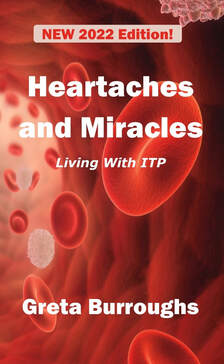 Living with ITP has its own special obstacles to overcome. It can be a hard road filled with relapses and disappointments, but with a positive attitude and support from friends and family, there is hope. The biggest hurdles come from the roller coaster ride of steroids and other types of medications and treatments. Heartaches and Miracles is a combination of autobiography, research information, and pep talk for anyone suffering from ITP or for family members and friends who want to understand this often-unfamiliar disease. Heartaches & Miracles is "chicken soup" for the ITP soul, giving encouragement & strength to those affected by this blood disorder. Reading how others have coped and learning about the promising future of new and better treatments will hopefully give those newly diagnosed a glimpse of what to expect and provide everyone with ITP a new hope for tomorrow. Heartaches and Miracles Kindle - https://www.amazon.com/gp/product/B005FYG7E4 Universal link - viewbook.at/heartachesandmiracles 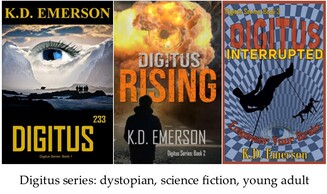 Hello dear readers! I am Kim Mutch Emerson and I’m excited to be here. I hope you have time to sit with me for a few minutes, cuz I’d love to ask you a couple questions. Feel free to answer them in the comments below. Did you have a burning desire to do something in your life? And were you ever able to do it? From my earliest memories I wanted to work with words. I wanted to be a writer, and that’s exactly what I became. I'm an author of several genres under the nom de plume of K.D. Emerson and a ghostwriter of non-fiction memoirs and business books. You can find most of them on Amazon. One of the roles I’ve loved the most in my life is that of a teacher and mentor to writers looking to perfect their craft and publish their work, so I stepped out and created a small publishing house (Master Koda Select Publishing, LLC) to help support that. I don’t know about you, but for me the last few years have been a time of introspection and growth. Yeah, I know, I hear y’all wondering how I can possibly have enough depth to introspect that long? All I can say is, I blame covid. Just when I think I understand life and the human condition, I forget what I thought I knew, and I have to start all over. This is probably why I write in genres like sci-fi and dystopian. My writing is just an extension of life as I witness it with a little twist thrown in. 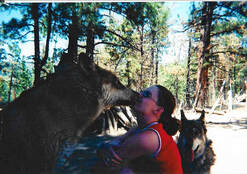 Another reason I am drawn to dystopian fiction is the realization that life is far too short and precious to waste one second on things that bring you down. I don’t care what they are or how they ended up in your life, if they don’t bring you joy, leave them at the repair shop and don’t return. Someone else might get a kick out of them, but for you, they are no good. Success as a writer isn't measured by how many books one sells or how famous s/he is. A successful writer is one who can create a deeper feeling or thought process in the reader, no matter what the genre is. I personally have a passion to create books for the upcoming generation and those who are the future leaders of the world. I feel those who write for teens and young adults carry a heavy responsibility to help these young people become deep thinkers so they can impact the future in a positive way. This is what I hope I have done in my Digitus series. Two authors that come to my mind who have been successful in doing this are Chris Crutcher and Robert Cormier. One of the questions I get asked most is where does inspiration come from? Inspiration comes from rainy days, from thunder and lightning. It come from the rolling ocean and silence of the night. I had the opportunity to live with a pack of wolves at the turn of this century in the high mountains of Colorado. They inspired me daily and taught me many lessons about what’s important in life. Lessons of loyalty, healing, and mindfulness. They taught me patience and to listen to the wind. They inspired me to be the best human I could possibly be, to seek the kind and gentle self within. They showed me there is no need for greed or anger. You protect the young, old, and weak. You stand for the right. And if you do that, success will follow. I’m a better person because of them. What about you, dear reader? What inspires you? Did you have a wolf pack or rainstorm? Was life turned upside down? What have you learned this year? Feel free to contact me through my website, www.masterkoda.com, or join my newsletter at that same address. I would love to hear your story. 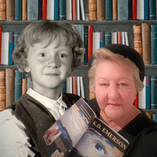 Thank you, Greta and Dannye for inviting me to your blog today. It’s been a pleasure. http://www.MasterKoda.com https://www.facebook.com/kimmutch.emerson There’s never enough time to do everything you need to do. So some projects continually get put on the back burner. One of these tasks may be taking the kids to the library to pick out some books. It’s not that you don’t want to do it, but sometimes it takes forever for your picky readers to decide what they want. We can’t blame them though. Grown-ups suffer from the same problem. It’s hard to make decisions when faced with so many tantalizing choices. Life would be so much simpler if your children could have a book magically appear in front of them whenever or wherever they wanted without having to go anywhere. To sweeten the deal, the books need to be free, like at the library, but no one has to make a special trip to pick them up. Don’t get me wrong. Nothing will ever replace our beloved public libraries. However, with the price of gas, and our busy schedules, it’d be nice to get a break from running around. Well, ask nicely, and the World Wide Web will give you a diverse selection of options to make your wish come true. Naturally, everyone is familiar with Amazon.com. If you have Prime and/or Kindle Unlimited, books can be downloaded to a computer, tablet, or phone at no cost. Of course, kids will not have free access to your Amazon account, so you have to supervise the transactions. Then again, that’s not so bad either. Sitting together and looking at books is a great way to spend an evening with the young ones. There are also free, reputable, user-friendly reading websites that offer eBooks, games, activities, etc., for children of all ages. As with any site designed for kids, initial parental supervision is required to sign up or register the children and confirm the site is appropriate for their child’s grade or age level. Weareteachers.com has approved the following websites to be safe and fun for the kids:
Below we have provided a PDF you can download below and print out so your child can keep a list of their reading.
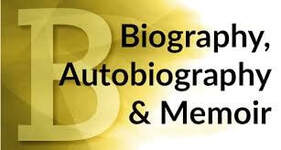 How many times have you heard someone say, "You should write a book about that?" I'm guilty of saying it, and if you're honest, you'll admit to uttering words to that same effect as well. When someone captivates your imagination with an (obviously exaggerated) tale of daring exploits, or has you laughing hysterically with their youthful misadventures, the well-used phrase automatically escapes your lips whether you honestly mean it or not. It's true. Everyone has a story. People enjoy reminiscing about happy memories, meeting a famous person, or traveling to an unusual place. However, some of the sagas fall on the opposite end of the spectrum and are not meant for entertainment. Instead, the narratives describe serious subjects such as overcoming horrible situations or coping with a chronic disease. All these personal accounts deserve to be heard, and fortunately, three non-fiction genres allow these stories to be told: biography, autobiography, and memoir. Biographies are an objective history of a person's life written by someone else. It's usually written in third person and compiled through extensive research, interviews, letters, diaries, photographs, essays, and other reference materials. The best biographies bring their subjects to life. As a general rule, the narratives are written in chronological order weaving the details of the person's life into an attention-grabbing story. This genre helps us to get to know the background behind historical figures as well as currently popular names we hear but don't really know much about their previous life. Most biographers are very studious about getting their facts correct, but every once in a while, errors occur. Biographies are fairly straightforward and easy to understand, but the two other categories can be a bit confusing. The terms autobiography and memoir are occasionally used interchangeably to describe a book, even though they are two totally different styles of writing. An autobiography is the comprehensive history of a person's life, written by that person. It's more subjective than a biography since it's based on the author's personal memories. Autobiographies usually detail the life of a well-known personality and are written in first person portraying his or her life experiences and achievements. The story often begins with the writer's recollections of early childhood and details education, career, life experiences, challenges, and accomplishments. Some accounts emphasize a particular part of the author's life while glossing over less interesting aspects, while other autobiographies chronicle the person's complete history. The finished works are as unique as the writers themselves. This brings us to memoir. It's the same as an autobiography since it is written in first person as a personal account. Still, it differs as it focuses on a particularly memorable event rather than the author's whole life. Memoirs come in all shapes and sizes. The emotional connection created through a personal, intimate story can touch, inspire, or break the reader's heart. They can also take you on a once-in-a-lifetime adventure or explain how a life-changing experience helped the author discover a new truth. Being less formal, the tale relies on emotions and feelings. The flow of the story can be chronological or move forward and back in time as the author selects pertinent life events to tell the tale. They take us on a journey or give a glimpse into life viewed from a different angle Memoirs are typically read because of their theme or subject matter, so factual accuracy is not as crucial as it is for biographies or autobiographies. Instead, the message is the vital factor. It's what makes the reader think Wow! as the narrative comes to an end. Many folks shy away from non-fiction genres because they think the books are boring. For these people, I recommend a memoir, autobiography, or biography of someone they admire. Delving into the little-known facts that made someone else noteworthy may inspire the readers to look inside themselves and discover the story hidden within them which needs to be shared. Be sure to subscribe to the Sweet & Sassy blog, so you never miss out on any of our posts! |
Categories
All
Book GenresArchives
July 2024
|
||||||||||||
I will read forever because it lets me visit in my mind the worlds that I will never be able to see; it helps me put away the stresses of the day and relax into the rhythm of the story before me; it lets me bring to the surface and experience without regrets those feelings I hide away; it lets me re-experience the thrill of first love through someone else's eyes; it keeps my mind juiced so that it will never desert me; it is always there for me even when there's no one else. I will read forever no matter whether it is print or digital because the words will always call to me. ~ A Sassy Scribbler
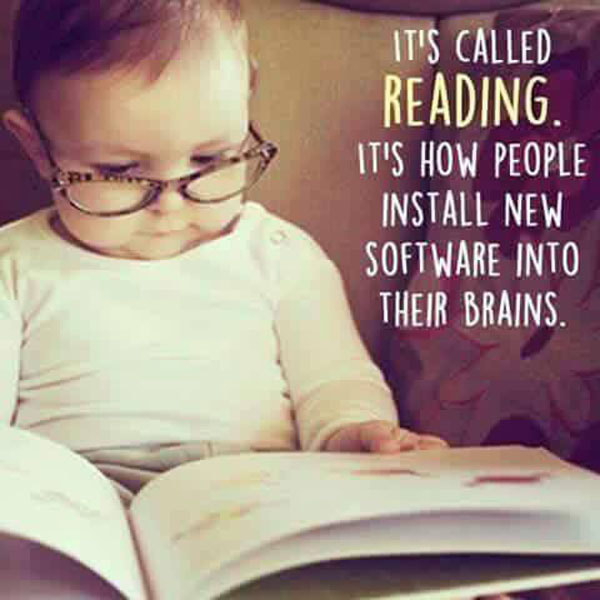


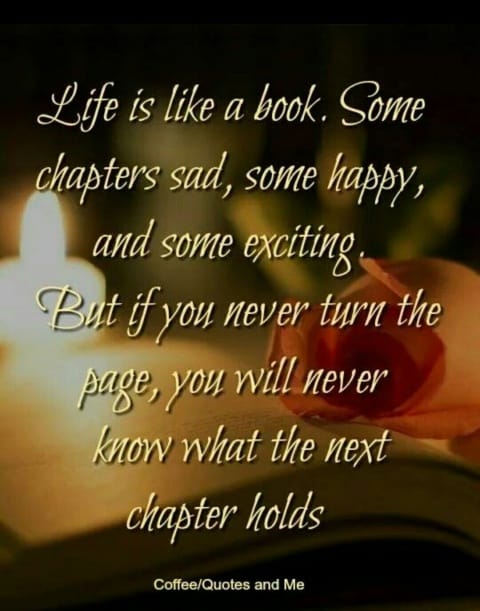
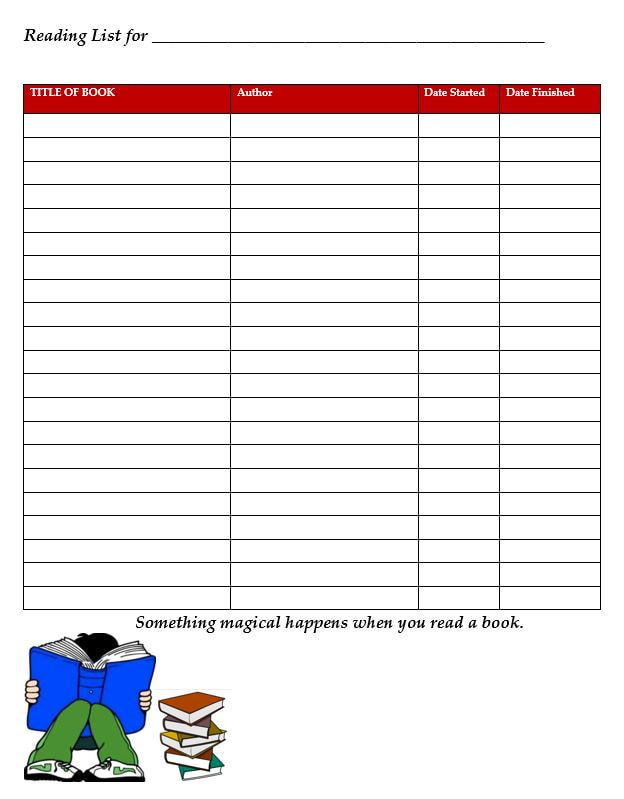
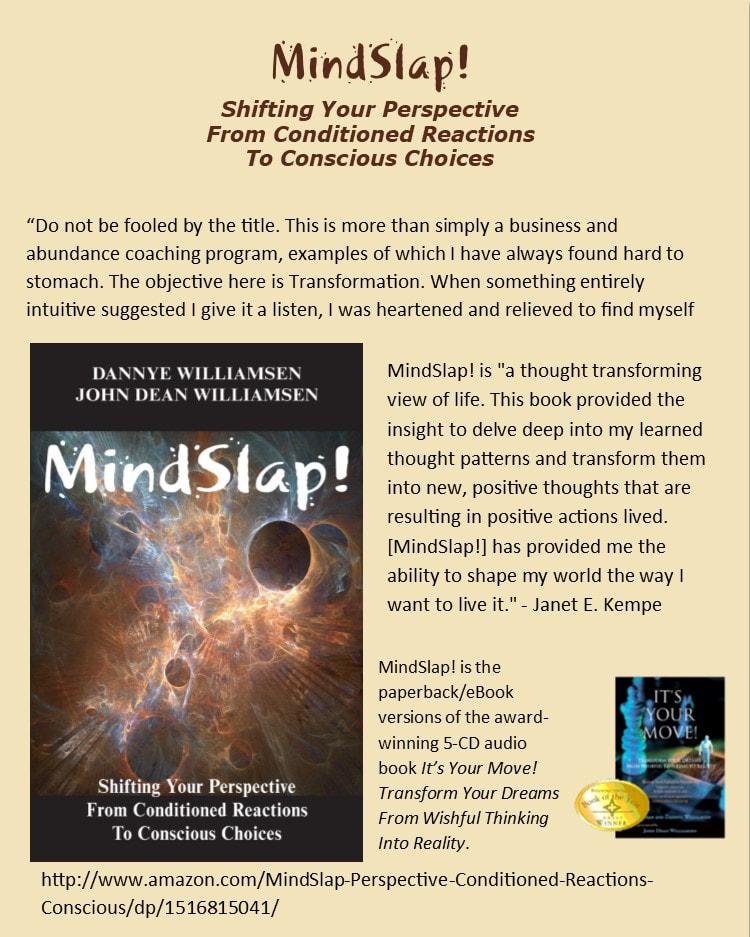
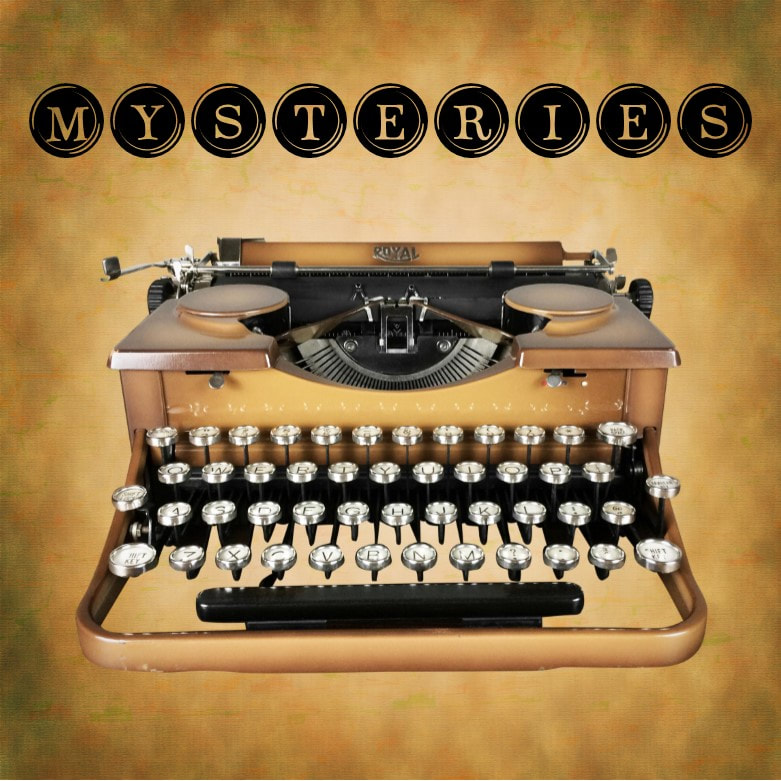
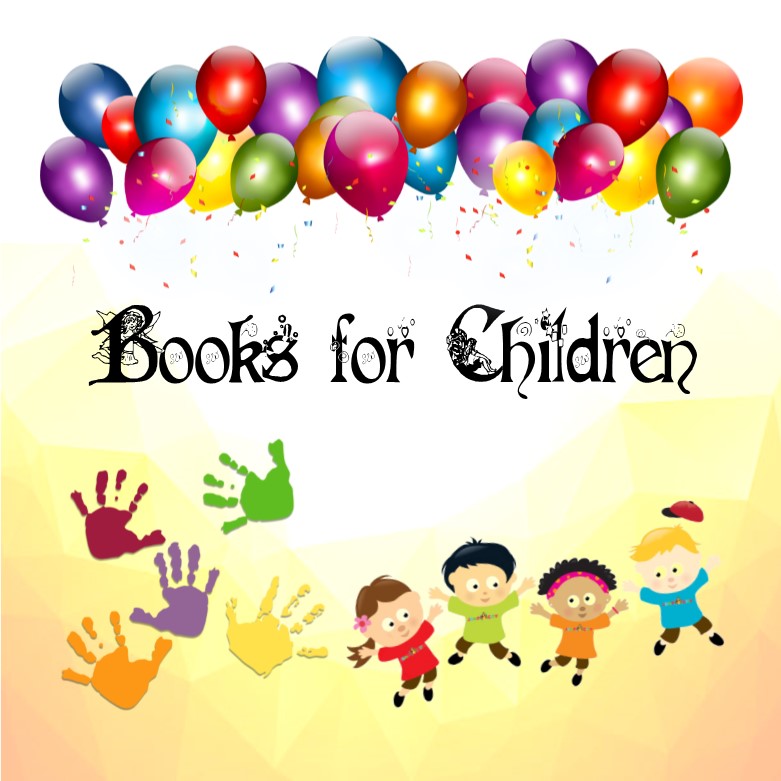
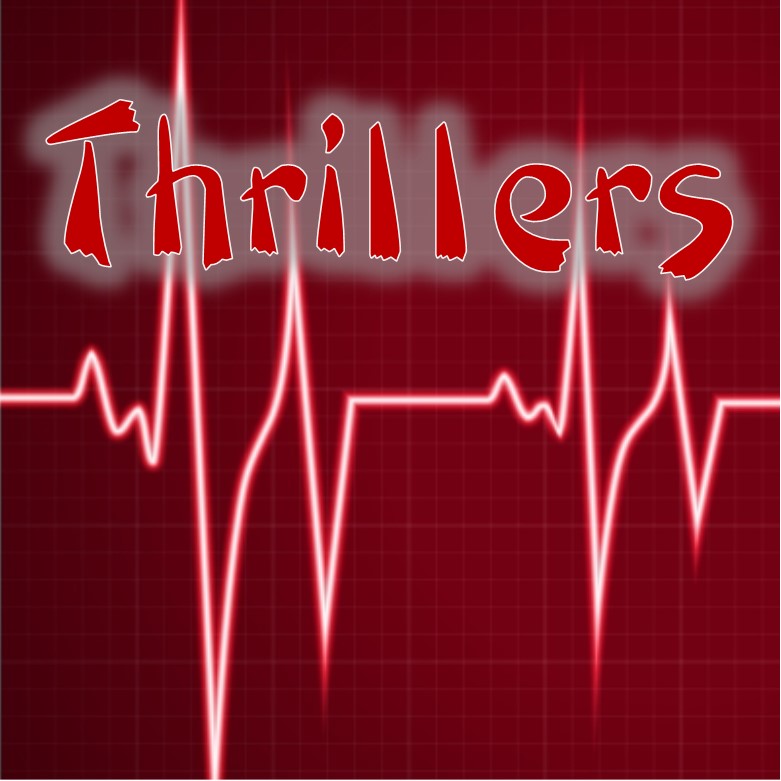
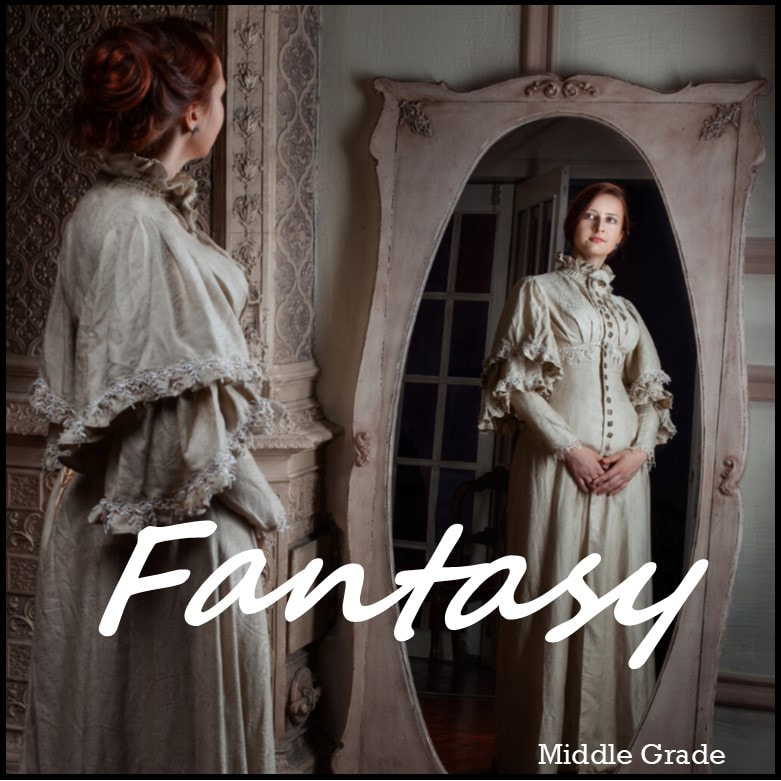

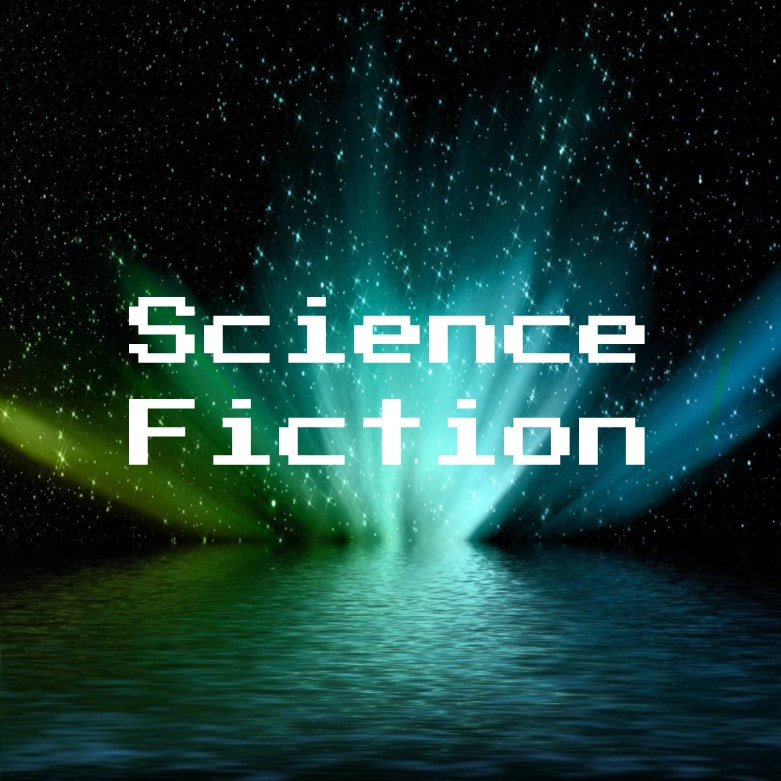



 RSS Feed
RSS Feed